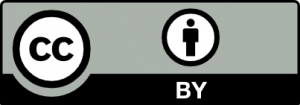 This post by Joseph Mulligan is part of an occasional series on graduate students’ “Intern Experience” at Duke University Libraries. Joseph received his PhD in Romance Studies in 2022 and is currently a Post-Doctoral Associate at Duke.
This post by Joseph Mulligan is part of an occasional series on graduate students’ “Intern Experience” at Duke University Libraries. Joseph received his PhD in Romance Studies in 2022 and is currently a Post-Doctoral Associate at Duke.
Like many graduate students, I spent much of my academic career reading and researching in the library. But I also participated in initiatives based out of the Libraries (like Archival Expeditions) and worked in various Libraries departments. Perhaps my most formative experience was through my work as a Humanities Unbounded Graduate Assistant (2019-2022) in Duke Libraries’ Digital Scholarship and Publishing Services (DSPS) department. The skills I learned from my libraries work have been translatable in surprising ways. In this post I share my experience so that graduate students in the earlier stages of their programs might see how working with the libraries can be an integrating force in their doctoral experience.
In the first semester working with DSPS, I spent much of my time in the proverbial sandbox: researching current trends in digital humanities scholarship, identifying methodologies used widely in academia, and studying how digital projects are organized and funded. For instance, I learned how interactive web maps are being used by practitioners of spatial history. I discovered that corpus analytics, or text mining, is entirely accessible for scholars who wish to incorporate digital methods into their research — even if they are not card-carrying, self-proclaimed Digital Humanists. Moreover, I started thinking about the critical importance of applying metadata to items in one’s digital research archive. Through these first explorations, I discovered methods and tools that would advance my research agenda, and, to my surprise, I realized I could use these same tools in the undergraduate classroom, to help facilitate students’ critical reflection on primary sources.
The digital methods I learned from this first semester with DSPS carried over into my pedagogical research as a fellow in Archival Expeditions, directed by Katie Henningsen of the David M. Rubenstein Rare Book & Manuscript Library. In my project, sponsored by José María Rodríguez García of Romance Studies, I innovated a module of a modern Spanish literature survey course by integrating digital image repositories and web mapping activities into lesson plans that promoted collaborative inquiry. Specifically, I created a digital reproduction of two art exhibits that were displayed in the Museo Circulante (also known as Museo del Pueblo) of the government-sponsored service-learning program Misiones Pedagógicas in 1930s Spain. These exhibits reproduced paintings that dated back to the 16th and 17th centuries. I complemented this digital reproduction by compiling an archive of photographs which documented the exhibit openings as well as other activities undertaken by the program. Additionally, I incorporated this archive of documentary photographs into an interactive web map – Misiones Pedagógicas Cartografiadas – which visualizes the dispersion of the outreach program and identifies participants at a given location, visually representing the participants in the form of a photograph, when one is available. (Access the module here.) The following year, I incorporated these digital approaches into a seminar I developed for first-year students, Culture on Wheels (taught with the support of the Bass Instructional fellowship). I also presented this work at the 2022 Modern Language Association annual convention, as part of a panel I convened titled Digital Methods in Humanities Pedagogy.
Aside from helping me incorporate digital methods into my teaching, the Humanities Unbounded assistantship with DSPS also developed my ability to support the research of fellow graduate students as well as Duke faculty and visiting scholars, specifically with respect to digital image management, text mining, and network analysis. For the MicroWorlds Lab, the Manuscript Migration Lab, and the National Humanities Center, I designed and led workshops that explored how digital images can be managed as data (using Tropy), how large digital corpora may be approached efficiently (using OverviewDocs), how networks of intellectual and material exchange can be studied and visualized from a relational perspective (using Kumu). In my prsentations I highlighted key features of the relevant tools and developed video tutorials that were used as pre-workshop activities but also designed as standalone modules open to the public.
Finally, during fall 2021, I worked closely with Humanities Unbounded Visiting Scholar Dr. Gay Byron of Howard University, who spent the 2021-2022 academic year deeply engaged in archival research on the collection of Ge’ez (Ethiopic) manuscripts held in special collections at the Rubenstein Library. At the intersection of philology and the history of religion, Dr. Byron’s research consisted, in part, in complementing and supplementing the Rubenstein’s catalogue description of this collection as well as creating a digital archive of the manuscripts and scrolls. With the support of Andy Armacost (the Rubenstein Library’s Curator of Collections) and through consultations with other archivists, I helped Dr. Byron establish a workflow for her project, designate roles between her and her assigned Research Assistant, incorporate the software Tropy into her research process, and build a customized taxonomy with a metadata template that, when applied to her files, effectively organized her archive for easy reference, annotation, and sharing.
In each of these cases, my position in the Libraries allowed me to collaborate with faculty and students to create, develop, and sustain innovative scholarship. The Libraries are distinctive in offering these kinds of opportunities for exploration and cross-disciplinary partnership, and as a result of my work here, I’ve been able to cultivate skills that continue to enrich my scholarship and teaching.










